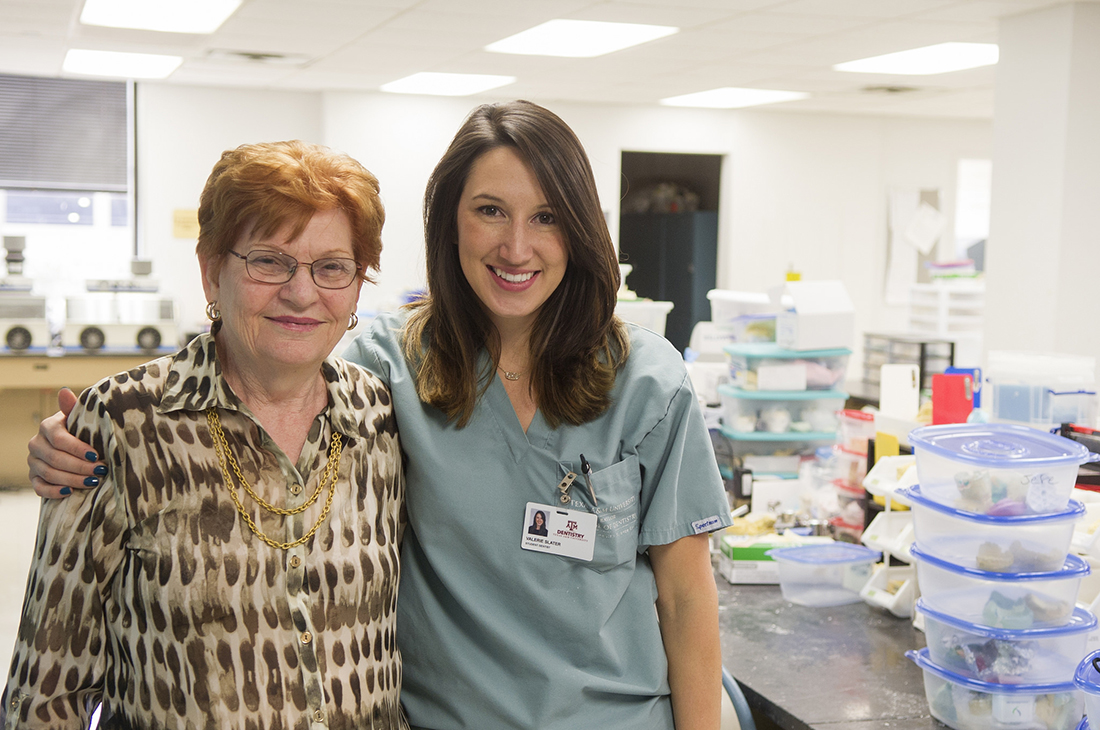The Way I See It: Dr. Ety Friedman ’72

What was especially distinctive about your time at the college?
I was an odd addition to my class at Baylor University College of Dentistry in 1969: I was the only woman in a class of 97 men, and I was foreign born with a foreign dental degree. In my class at the University of Zulia in Maracaibo, Venezuela, only two of the 30 students in the class were men.
Eight years after I graduated from dental school the first time, I moved to Dallas with my husband, an American who was working in Venezuela in the oil industry when we met, and our two young sons aged 3 and 4 ½. I wanted to revalidate my degree so I could practice in Dallas.
I was accepted as an advanced-standing student in the sophomore year after a lengthy interview with the dental school’s department heads and a trip to Houston to take a Sciences Achievement Test as required by Dean Kenneth Randolph. A stipulation was that I take biochemistry again with the freshman class, which meant dedicating an hour of clinical time every week my junior year to attend the class.
What I loved most about dental school the second time was being able to do four-handed dentistry, which was then in its beginnings.
Did your early practice years teach you a thing or two?
My experience probably was different than that of my classmates because at the time there were not too many woman dentists.
After practicing for a while as an associate with another dentist and a few hours a week in public health dentistry, which I had done in my native country, I decided to open my own practice. Surprise of surprises! I could not get a loan unless my husband co-signed. I imagine any of my classmates with a dental degree and potential for a decent income didn’t have to have their wives co-sign.
The bank requirement was so distasteful to me, I decided to pay cash for the equipment needed to open a dental office. I used some inherited money and, with my husband’s help, opened an office with one chair, eventually adding two more chairs.
Over time I hired a dental hygienist plus an office manager and two dental assistants. I practiced in that location for about 15 years. I also worked at the dental school once a week as a clinical instructor in the Department of Endodontics under Dr. Patrick Ferrillo.
How did your professional journey continue?
When my older son got married, I decided to sell my practice. I didn’t want to be tied down with the responsibilities of a private practice and not be able to travel and see my grandchildren and babysit. I went back to work part time in public health at Dental Health Programs in Dallas, which allowed me the option to travel when needed. That way, I worked for another 13 years before I retired in 2001.
Is dentistry something you shared with your children?
As my children grew up, I used to enjoy having them help me in the office during their vacations from school. I don’t know if that experience influenced them in choosing careers in the healing fields, or maybe it is my wishful thinking. Neither of them wanted to be a dentist, but my older son is a cardiologist, and my younger son is a psychologist.
What is the best part of your life these days?
No big responsibilities most of the time. My husband finally retired at 80 — I think he is a workaholic — so we travel, volunteer, take classes and do yoga. We have been blessed with good health, two wonderful sons and a daughter-in-law, and three beautiful and accomplished granddaughters.